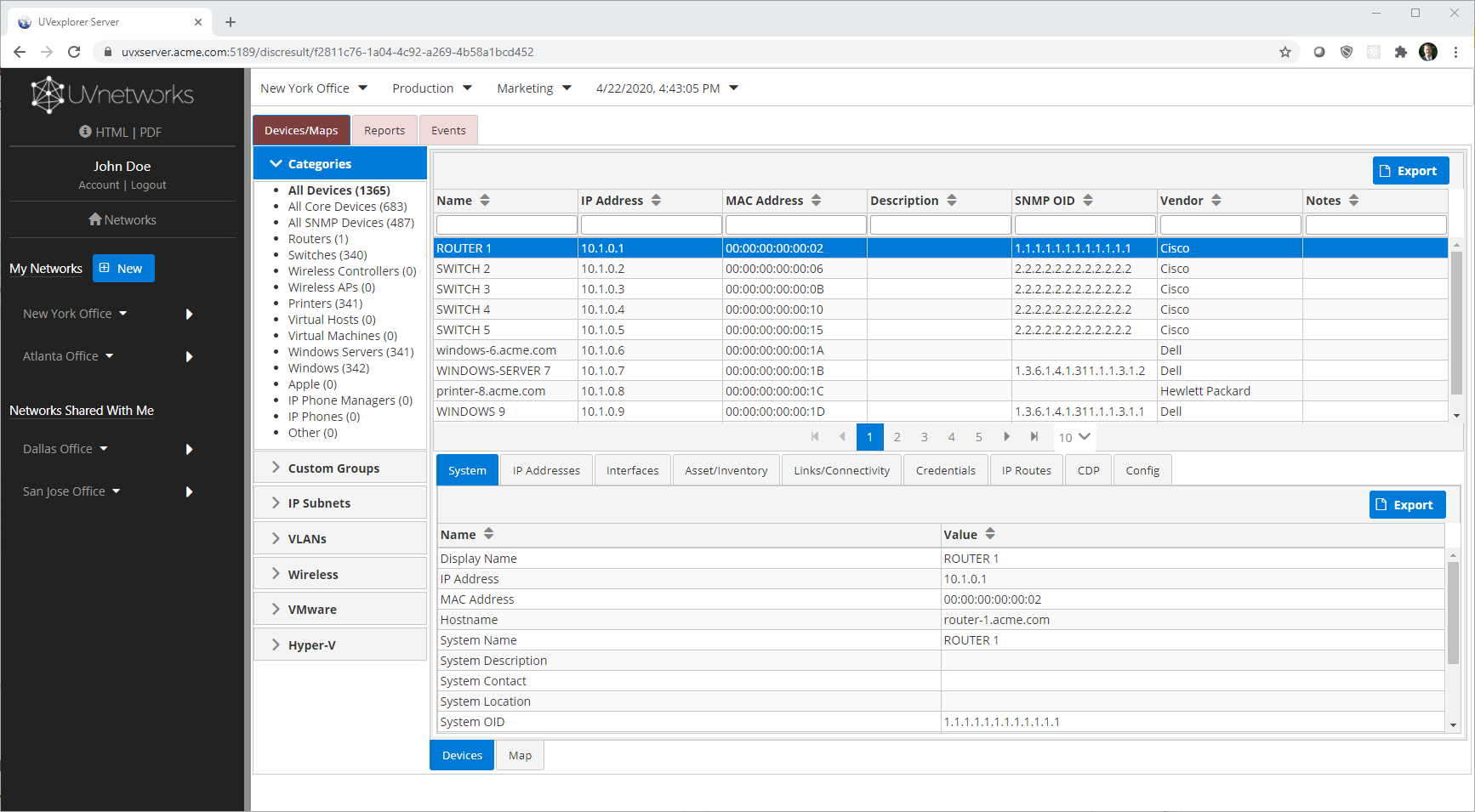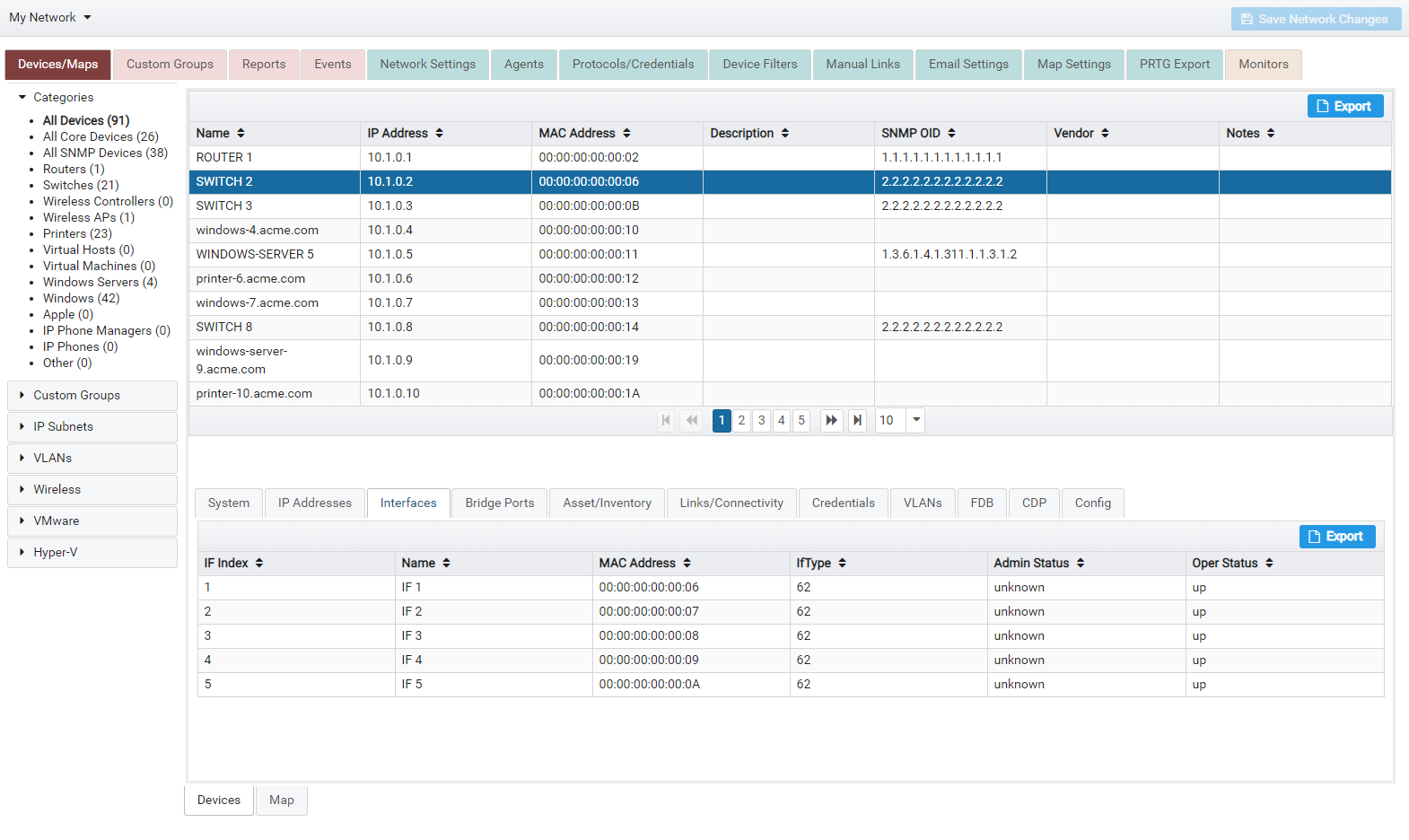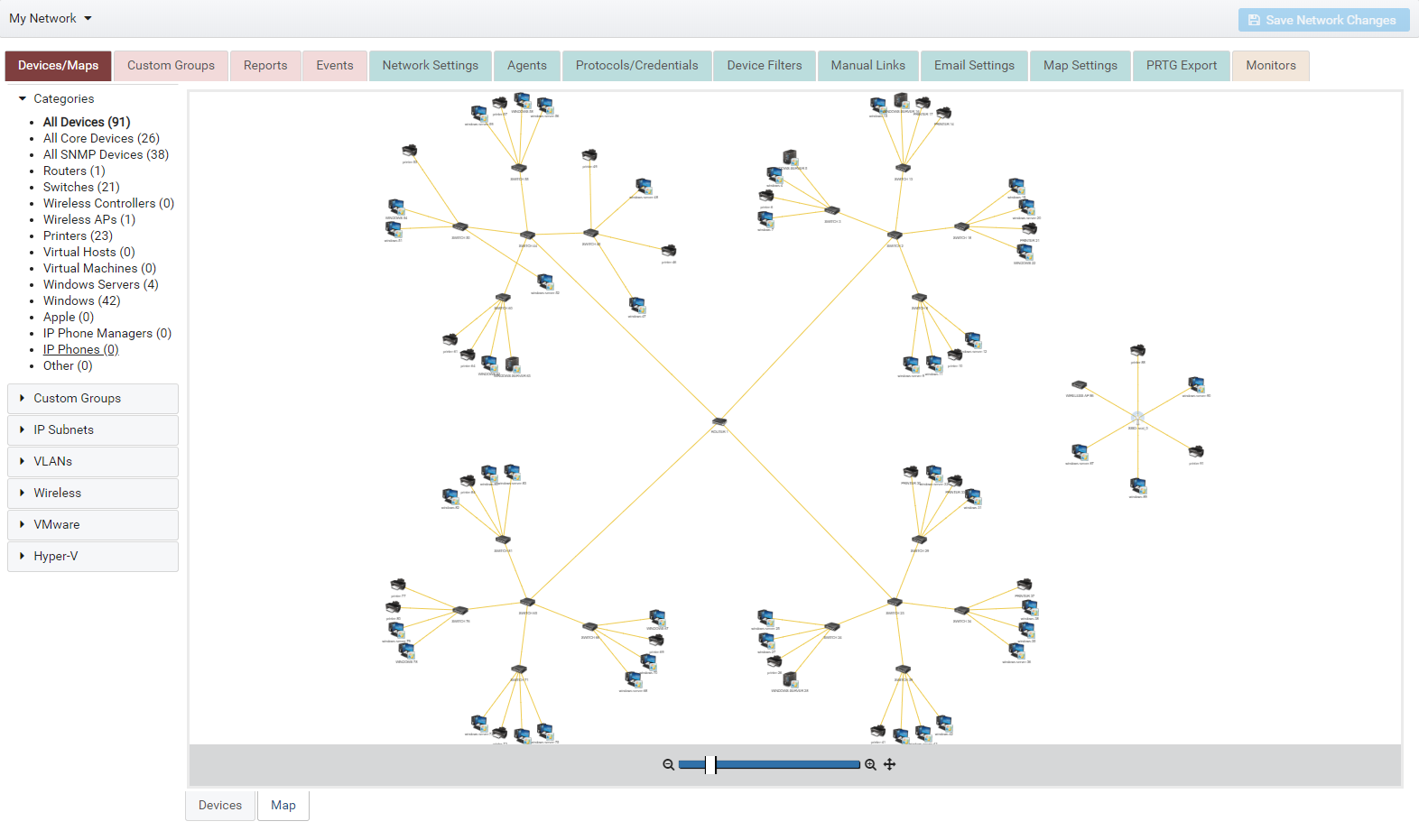Overview
-
UVexplorer Server is a Web version of the UVexplorer desktop application that supports agent-based, distributed network discovery and monitoring.
-
UVexplorer Server is intended for organizations with larger networks, and Managed Service Providers that manage multiple customer networks.
-
One or more agents can be distributed throughout a network, each of which is responsible for discovering and monitoring a subset of the network.
-
Each agent posts its discovery and monitoring results to a central server, where results from different agents are combined into a single comprehensive view of the network.
-
Discovery and monitoring data, maps, and reports are viewed through the UVexplorer Server web console, which makes your data available wherever you are.
-
Agents are also configured through the UVexplorer Server web console, providing centralized control over the agents distributed throughout the network.
Key Features
 DISCOVER
DISCOVER
 DOCUMENT
DOCUMENT
 MONITOR
MONITOR
Automatically and quickly discover information about the devices on your network and the connections between them. Perform agent-based distributed discovery of your network. Manage multiple separate networks, or divide a larger network into multiple smaller management scopes.
Learn MoreCreate network maps for documentation, meetings, presentations, sharing with your boss, or hanging on the wall. Export UVexplorer Server's automated network maps to Microsoft Visio™, Lucidchart™, PDF, and SVG documents.
Learn MoreMonitor the status of critical devices and services on your network. Receive notifications when problems arise. Track your network's performance using UVexplorer Server's Ping/Latency monitors and SNMP Network Interface monitors
Learn MoreGet detailed inventory data and reports for your devices. View system information, serial numbers, IP/MAC addresses, host names, installed software, network interfaces, network connections, route tables, ARP caches, BIOS information, and much more.
Learn MoreManage and monitor your wireless network infrastructure. Know who is on your wireless network. Detect rogue access points. Receive notifications when your wireless infrastructure changes.
Learn MoreReceive automatic notifications when important changes occur on your network. Be the first one to know when important devices appear or disappear on your network, and when your network topology changes.
Learn MoreAutomatically create network maps that display connections between your network devices right down to the port-level. Use network maps to monitor the status of devices on your network.
Learn MoreManage and monitor your virtual IT infrastructure. Discover VMware and Hyper-V virtual machines, virtual hosts, virtual servers, and virtual switches. Visualize you virtual assets with UVexplorer Server's automatic network maps.
Learn MoreWith UVexplorer Server's PRTG Connector, add powerful network discovery, detailed device inventory, and automatic network maps to PRTG Network Monitor.
Learn MoreUse scheduled discoveries to keep your discovery results constantly up-to-date. Receive notifications when important devices come or go on your network, and when network links change.
Learn MoreBackup the configurations of your network devices, such as routers, switches, and firewalls. Track how device configurations change over time. Access backed-up device configurations when you need to restore failed devices, or configure devices for the first time.
Learn MoreUVexplorer Server is a powerful and affordable network management solution. Pay far less than you would for competing solutions.
Learn MoreHow It Works

Agents are deployed on one or more nodes throughout the network. Each agent is responsible for discovering and monitoring a subset of the network.
Agents are configured through the Web Console, and their configurations are stored in the Server database.
Agents periodically poll the Server to retrieve their current configurations, and execute the discovery scans and monitors specified in their configurations.
Agents post discovery results and monitor data to the Server. The Server is the repository of all agent configurations, discovery results, and monitor history data. The Web Console allows all of this data to be viewed and reported on.

Through the Web Console, you can define multiple "networks". Each network is a management scope that represents either a separate physical network, or a segment of a larger network. The configuration and data for each network is stored and managed separately. This gives you the ability to manage your network(s) in a way that naturally maps to the structure of your organization or business.
Within each network you can define one or more "agents". When you create an agent within a network, you are defining the configuration for the agent. This includes what discovery scans it should run, what monitors it should run, what device credentials it should use, etc. The software agents deployed throughout the network are then "bound" to the server-side configurations defined for them.

Each agent stores its discovery results and monitor history in a local database on the agent machine, but also sends the data to the Server for storage. This data can be viewed and reported on through the Web Console.
In addition to storing the discovery results and monitor data from each agent, the Server also merges (or "rolls up") all of the data from a network's agents into a unified network-level view of all the data in the network.
Although there may be multiple agents deployed throughout a network, the Web Console provides both network-level and agent-level views of the data. This lets you view the data at whatever level you prefer.




